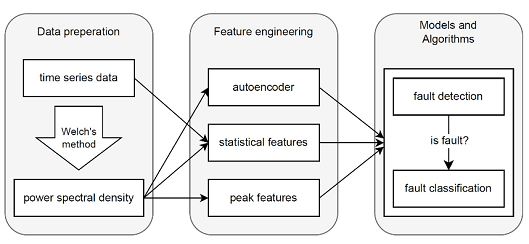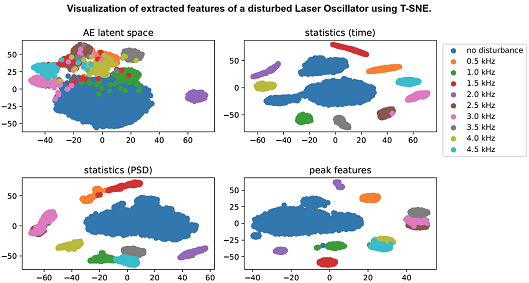URL: https://msk.desy.de/e88987/e333178/e333866/index_ger.html
Breadcrumb Navigation
Predictive maintenance of the laser synchronization system
Introduction
In today's fast-paced technological landscape, advanced scientific facilities play a pivotal role in pushing the boundaries of human knowledge. One such facility is the European X-ray Free-Electron Laser (XFEL), a groundbreaking research institution dedicated to exploring the fundamental properties of matter on an atomic and molecular level.
At the European XFEL, the Optical Synchronization System plays a crucial role in supporting and enhancing the facility's general operation, while enabling specialized pump-probe laser experiments.
To maintain the XFEL's cutting-edge capabilities, it is imperative to monitor and maintain the Optical Synchronization System in optimal working condition. Traditionally, maintenance activities have been performed on a time-based or reactive basis, leading to potential operational disruptions, costly downtime, and suboptimal performance. However, advancements in data analytics, machine learning, and predictive maintenance techniques have opened up new avenues to address these challenges effectively.


Purpose/goal/objectives:
This project aims to implement a predictive maintenance approach for the Optical Synchronization System at the European XFEL. By harnessing the power of data analytics and machine learning algorithms, we seek to move from a reactive maintenance model to a proactive one. The goal is to predict and prevent potential failures, detect early warning signs of degradation, and optimize the performance and availability of the OSS, ultimately contributing to the smooth operation of the XFEL facility.
References:
- Grünhagen, A., Tropmann-Frick, M., Eichler, A. & Fey, G., (2023). Predictive Maintenance for the Optical Synchronization System of the European XFEL: A Systematic Literature Survey. In: König-Ries, B., Scherzinger, S., Lehner, W. & Vossen, G. (Hrsg.), BTW 2023. Gesellschaft für Informatik e.V.. DOI: 10.18420/BTW2023-70
- Grünhagen, Arne et al. (2023), "Condition Monitoring and Fault Detection of a Laser Oscillator Feedback System". Information Modelling and Knowledge Bases XXXV. (accepted)


